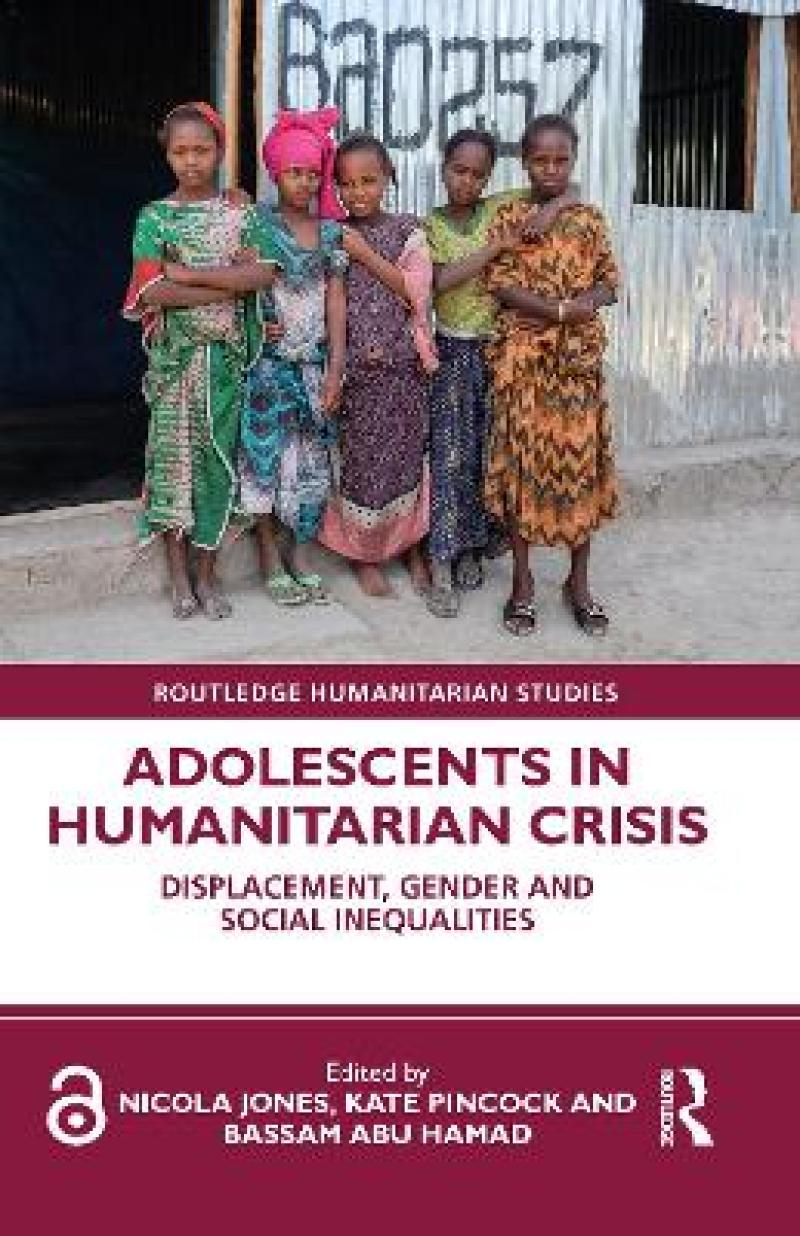<p><strong>"This book is a much-needed evidence-based contribution to the important topic of how adolescents experience diverse humanitarian crises. Its attention to the rights and the multiple challenges facing adolescents, including the impact of the Covid-19 pandemic, makes it a timely piece of work in the overall regional effort to achieve the global SDG agenda ‘leave no one behind’."</strong><i> --</i> <i>Luay Shabaneh, Regional Director, UNFPA Arab States Region</i></p><p><strong>"This book exposes a critical gap in research and programming for adolescents in humanitarian settings </strong>– <strong>a population with unique vulnerabilities and opportunities but one that falls through the cracks in humanitarian response. Drawing from a rich set of quantitative and qualitative research across many contexts, it fills important evidence gaps about the challenges refugee adolescents face and implications for how to respond – both to improve outcomes for young people and reduce potential harm. I hope to see this on the shelves of both researchers and practitioners." -- </strong><i>Jeannie Annan, Chief Research & Innovation Officer, The International Rescue Committee </i> </p><p>"A much-needed contribution of original field research that shines a light on the lives, struggles and hopes of young people living amidst violence and deprivation. Essential reading for everyone concerned with ensuring these generations not only survive but thrive." -- <i>Dyan Mazurana, Research Professor, Fletcher School, Tufts University USA</i></p>
Adolescents in Humanitarian Crisis investigates the experiences of adolescents displaced by humanitarian crisis.
The world is currently seeing unprecedented levels of mass displacement, and almost half of the world’s 70 million displaced people are children and adolescents under the age of 18. Displacement for adolescents comes with huge disruption to their education and employment prospects, as well as increased risks of poor psychosocial outcomes and sexual and gender-based violence for girls. Considering these intersectional vulnerabilities throughout, this book explores the experiences of adolescents from refugee, internally displaced persons and stateless communities in Bangladesh, Ethiopia, Jordan, Lebanon, Palestine and Rwanda. Drawing on innovative mixed-methods research, the book investigates adolescent capabilities, including education, health and nutrition, freedom from violence and bodily integrity, psychosocial wellbeing, voice and agency, and economic empowerment.
Centring the diverse voices and experiences of young people and focusing on how policy and programming can be meaningfully improved, this book will be a vital guide for humanitarian students and researchers, and for practitioners seeking to build effective, evidence-based policy.
The Open Access version of this book, available at http://www.taylorfrancis.com/books/e/9781003167013, has been made available under a Creative Commons Attribution-Non Commercial-No Derivatives 4.0 license.
This book investigates the experiences and vulnerabilities faced by adolescents displaced by humanitarian crisis. It will be a vital guide for humanitarian students and researchers, and for practitioners seeking to build effective, evidence-based policy.
1. Leaving No One Behind: Exploring the Experiences of Adolescents in Humanitarian Settings 2. ‘No, We Are Not Allowed’: Barriers to Rohingya Refugees’ Educational and Economic Opportunities 3. ‘We Are Not Accepted Here’: Intersecting vulnerabilities of Internally Displaced Adolescents in Ethiopia 4. ‘There is Nothing Else to Aspire to in Our Life’: Exploring the Psychosocial Wellbeing of Married Syrian Refugee Girls in Lebanon 5. ‘They Tell Me That I Can Write and Read, So No Need for School’: Challenges in Realising International Commitments to Refugee Education in Jordan 6. ‘I no Longer Have a Hope of Studying’: The Impact of Gender Norms on Education and Psychosocial Well-Being of Refugee Girls in Rwanda 7. ‘Why Should I Stay in the Classroom?’ Drivers of School Dropout Among Stateless Palestinian Adolescents in Jordan 8. ‘No-One Should Accept a Miserable Life Like That!’ Opportunities for Reducing Violence Against Adolescent Refugees in Gaza 9. ‘It’s the Fear That Is Killing Us, Not the Actual Disease!’ Covid-19: An Unfolding Crisis for Adolescents in Humanitarian Settings 10. Concluding Reflections: Towards an Agenda for Policy, Practice and Research to Ensure No Adolescent is Left Behind
Produktdetaljer
Biografisk notat
Nicola Jones is Principal Research Fellow at the Overseas Development Institute (ODI), UK, and is Director of the nine-year global mixed-methods Gender and Adolescence: Global Evidence (GAGE) research programme, funded by UK aid.
Kate Pincock is Researcher for the GAGE programme at the ODI and Research Associate at the Refugee Studies Centre, University of Oxford, UK.
Bassam Abu Hamad is General Coordinator and Associate Professor in the School of Public Health Al-Quds University (Jerusalem) and also currently Associate Regional Director for MENA for the GAGE research programme.
